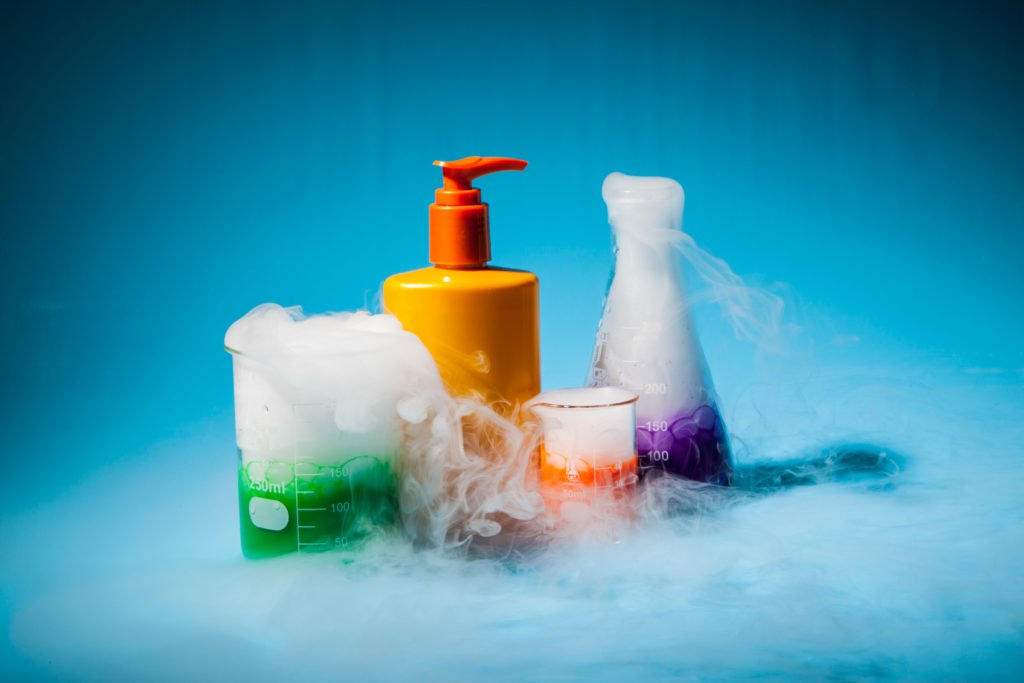Are Cleaning Products More Harmful than Good?
It’s finally starting to feel like spring! Many of us like to spring clean our homes during the seasonal change. When we clean our homes we hope to get rid of unwanted dirt, dust, and certain smelly odors. I want to ask the question on if what we are cleaning our homes with is better than some dirt or dust. Today I want to share some of the common toxic chemicals found in many cleaning products, and how it can impact our health.
Fragrance
Fragrances are added to many cleaning and skin products. These are chemicals that are formulated in a lab by scientist to mimic familiar smells. There are fragrances that smell like flowers, citrus fruits, etc. and the list go on. Anytime fragrance is listed on the label it is synthetic meaning that it was formulated in a lab, therefore not natural. Synthetic fragrances have been identified as harmful. They may cause irritation to eyes, skin, and lungs. May cause allergies, immunotoxicity, and organ system toxicity.
Other Chemical Toxins
The following list of toxic chemicals has been found to produce excessive oxygen species that interferes with cellular function in the body. Interference to cellular function may cause cell death without regeneration, and cancer.
- Retinyl Acetate
- Cocamide DEA
- DMDM Hydantoni
- D&C (dye and color)
- 1,4-Dioxane (found in liquid laundry detergents)
- Formaldehyde (this may not be listed as an ingredient on the label, however there may be ingredients that generate formaldehyde within the container such as bronopol)
This list may cause endocrine disruption, which lead to developmental and reproductive toxicity.
- Parabens
- Triclosan – this is a synthetic anti-bacterial agent
- Borax or boric acid
- Diethylene glycol monomethyl ether
These are asthma causing/worsening or respiratory irritants.
- Sulfuric Acid
- Sodium Hypochlorite (Bleach)
- Formaldehyde
- Ethanolamines
- Fragrance (synthetic)
These are just some of the chemicals to be aware of. There are many more.
Reduce the Load of Toxic Chemicals
To start reducing the load of toxic chemicals in your household start reading the labels on the products under your sink. You can easily check products on https://www.ewg.org/guides/cleaners where they grade products based on the ingredients, company, and supporting research.
This is a real concern that needs to be considered before using any kind of product that can be inhaled, put on the skin, or indirectly ingested. Look to natural sources such as essential oils. Not all essential oils are created equal. Look for true essential oils, which can be difficult because there aren’t forceful regulations. Some companies will say that the oil is 100%, but it only has to have a small percent of essential oil for them to say that. So the other percent are fillers or synthetic components with hold the same concern.
Tips
Here are some tips to help you find the best quality essential oil:
- Cost – pure oils will not be cheap
- Resist the urge to buy from
- Big box stores
- Any place that sells all their oils at the same price. Some oils need more plant material, or are harder to grow, or more difficult to extract the oil therefore they will be more expensive.
- The plants botanical or scientific name should be listed as the ingredient
- The company should have information on country of origin, and extraction process used.
- The company runs test on every batch of essential oils to ensure it is pure, high quality, and has the correct constituent ratios.
- Look for organic, unsprayed, or wildcrafted
- Resist the urge to buy from
For more information on how Evexia Family Chiropractic can help you Contact Us Today!
Sources:
EWG’s Guide to healthy Cleaning
https://www.ewg.org/guides/cleaners/content/cleaners_and_health
Herbal Academy
https://theherbalacademy.com/how-to-choose-high-quality-essential-oils/
Young Living Essential Oils
https://www.youngliving.com/en_US/discover/seed-to-seal

